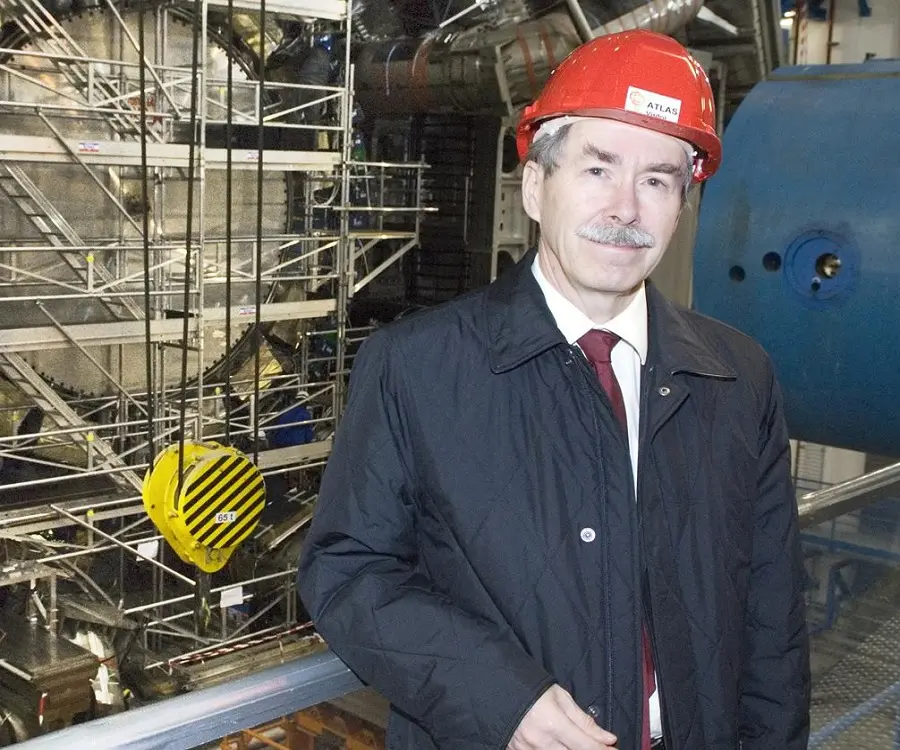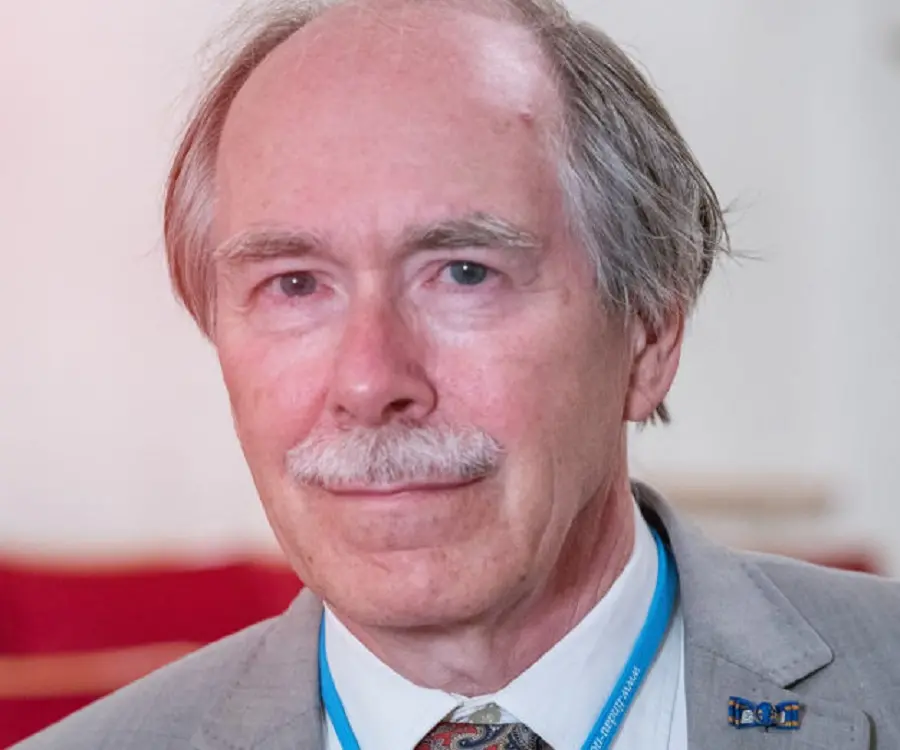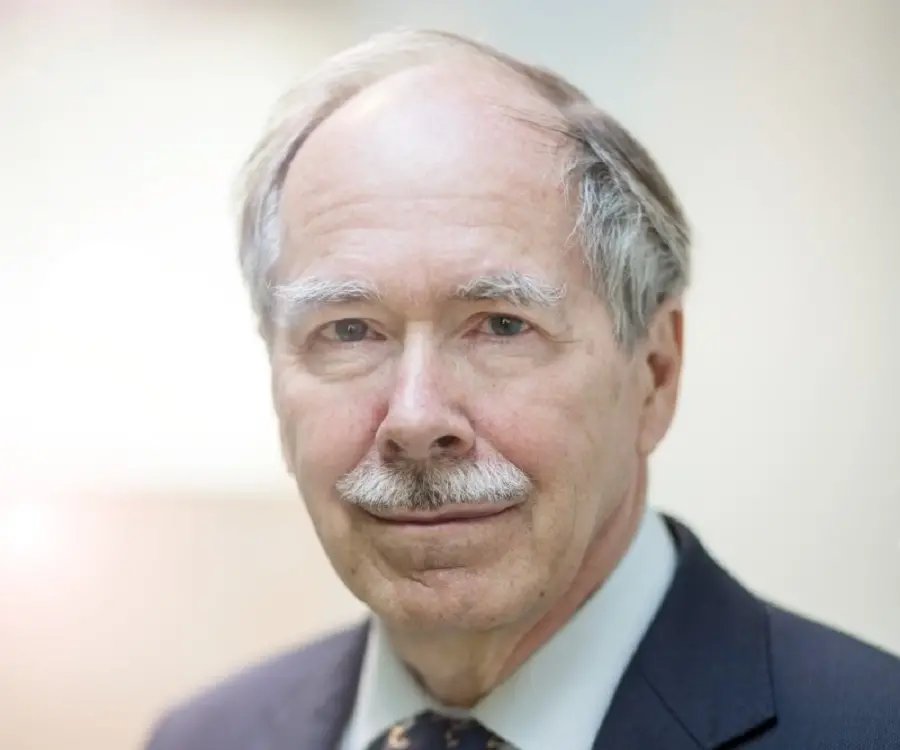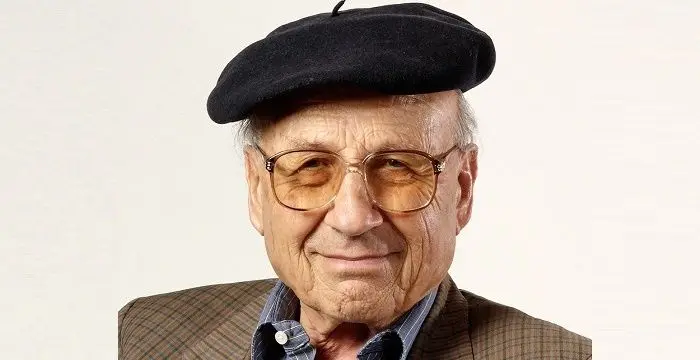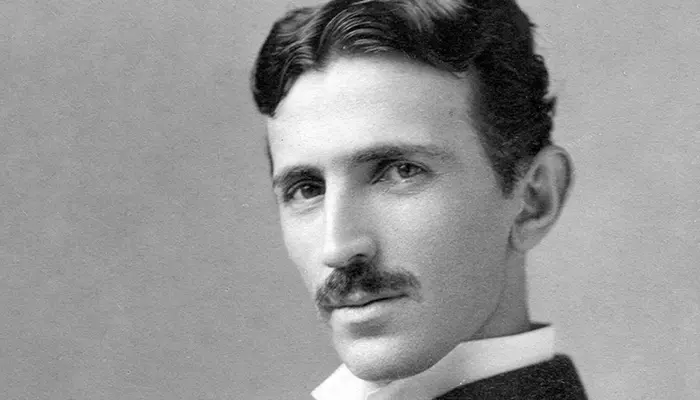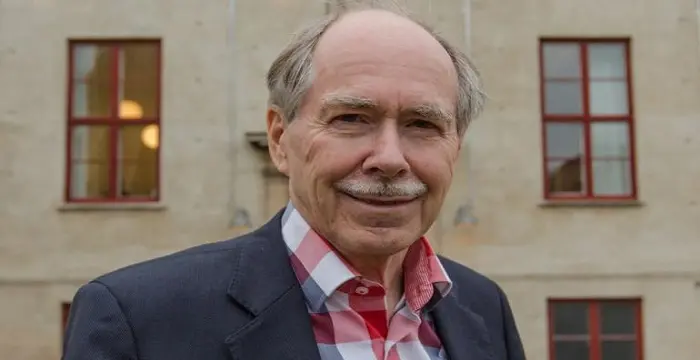
Gerard ’t Hooft - Physicists, Birthday and Personal Life
Gerard ’t Hooft's Personal Details
Gerard 't Hooft is a Dutch theoretical physicist who won a share of the 1999 Nobel Prize in Physics
| Information | Detail |
|---|---|
| Birthday | July 5, 1946 |
| Nationality | Dutch |
| Famous | Scientists, Physicists |
| Spouses | Albertha Schik |
| Known as | Gerardus 't Hooft |
| Childrens | Saskia and Ellen |
| Birth Place | Den Helder, Netherlands |
| Gender | Male |
| Sun Sign | Cancer |
| Born in | Den Helder, Netherlands |
| Famous as | Physicist |
// Famous Scientists
Juliane Koepcke
Juliane Koepcke is a German-Peruvian biologist, who was the lone survivor among the 92 passengers and crew of the ill-fated LANSA Flight 508 that crashed in the Peruvian rainforest on 24 December 1971. Know more about her life in this biography.
Henry Cavendish
Henry Cavendish was a theoretical chemist and physicist, renowned for discovery of hydrogen and calculation of the mass of earth. To know more about his childhood, profile, timeline and career read on
Konstantin Tsiolkovsky
Konstantin Tsiolkovsky was a Russian rocket scientist and a pioneer of astronautics. This biography provides detailed information about his childhood, family, personal life, career, achievements, etc.
Gerard ’t Hooft's photo
Who is Gerard ’t Hooft?
Gerard 't Hooft is a Dutch theoretical physicist who won a share of the 1999 Nobel Prize in Physics which he shared with his thesis advisor Martinus J. G. Veltman for their joint work on elucidating the quantum structure of electroweak interactions. An internationally renowned expert in the field of quantum mechanics, he has performed significant research on gauge theory, black holes, and quantum gravity. Born in the Netherlands into a family of scholars, he grew up in an intellectually stimulating atmosphere surrounded by family members with scientific inclinations. He decided early on that he wanted to be a scientist—bright and curious from a young age, all he ever wanted to do was decipher the myriad mysteries of nature. He attended the Dalton Lyceum where he excelled in science and mathematics but struggled with languages. He proceeded to study physics at Utrecht University where his uncle was a professor. He began his doctorate with Martinus Veltman as his advisor and the two men formed a long and productive collaboration that led to important research in the renormalization of Yang–Mills theories. Working together, the two scientists also formulated the electroweak theory which eventually won the duo the 1999 Nobel Prize in Physics.
// Famous Physicists
Henry Cavendish
Henry Cavendish was a theoretical chemist and physicist, renowned for discovery of hydrogen and calculation of the mass of earth. To know more about his childhood, profile, timeline and career read on
Walter Kohn
Nobel Laureate Walter Kohn was an Austrian-born American theoretical chemist and physicist. Check out this biography to know about his childhood, life, achievements, works & timeline.
Nikola Tesla
Nikola Tesla was a Serbian-American inventor, best known for his development of alternating current electrical systems. This biography of Nikola Tesla provides detailed information about his childhood, life, achievements, works & timeline.
Childhood & Early Life
Gerard 't Hooft was born in Den Helder on July 5, 1946, into a family of scholars. The middle child in a family with three children, he grew up in The Hague. His grandmother was a sister of Nobel Prize laureate, Frits Zernike, and his uncle, Nico van Kampen, was a professor of theoretical physics at Utrecht University.
As a young boy he attended the Dalton Lyceum where he excelled in science and mathematics but struggled with the languages. His aptitude for the sciences—especially physics—was apparent from a young age and he decided early on to become a scientist. A brilliant student, he earned a silver medal in the second Dutch Math Olympiad when he was 16.
He graduated from high school in 1964 and enrolled at the Utrecht University to study physics. His uncle was a professor there and he wanted to attend his lectures. While studying there he also joined the Utrechtsch Studenten Corps, an elite student association, and participated in co-curricular activities.
During his college days, he became acquainted with Professor Martinus Veltman, who specialized in Yang–Mills theory, a concept ‘t Hooft was interested in. he started his doctorate work under Veltman in 1969 and chose to work on the renormalization of Yang–Mills theories.
Following a period of intense collaboration and exciting discoveries, the student and his mentor developed the technique of dimensional regularization.’t Hooft obtained his Ph.D. in 1972 with a thesis titled ‘The Renormalization procedure for Yang–Mills Fields.’ By this time he had already demonstrated that Yang–Mills theories with massive fields due to spontaneous symmetry breaking could be renormalized.
Career
Upon completing his doctorate Gerard 't Hooft joined CERN in Geneva on a scholarship. Veltman also joined the organization shortly after and the two scientists continued their collaborative work. Together, they refined their methods for Yang–Mills theories.
Soon they began examining the possibility that the strong interaction could be described as a massless Yang–Mills theory. The theory had been proven to be renormalizable, and according to ‘t Hooft’s experimentation, this theory possessed certain properties that were contrary to popular perception of Yang–Mills theories at the time. However, he did not publish his results which were eventually rediscovered and published by Hugh David Politzer, David Gross, and Frank Wilczek in 1973.
In the 1960s scientists had formulated the electroweak theory—an important theory on electromagnetism and the weak nuclear force—but were unable to provide the required mathematical foundation. Gerard 't Hooft and Veltman took this challenge and were able to successfully renormalize it into a workable theory in 1969.
Taking further their research,’t Hooft published two articles that supported their findings and helped in taking forward the theory. The men were able to identify the properties of the W and Z particles predicted by the theory which led to the development of the ’t Hooft-Veltman model which allowed scientists to calculate the physical properties of other particles, including the mass of the top quark.
In 1974, 't Hooft returned to Utrecht an assistant professor. He was invited for guest positions at Harvard (Morris Loeb lecturer) and Stanford in 1976. He was appointed a full professor in 1978.
During the 1980s he was drawn to the subject of gravity in 3 spacetime dimensions, and in collaboration with Deser and Jackiw he published an article in 1984 describing the dynamics of flat space where the only local degrees of freedom were propagating point defects. He also researched on Superstring theory. In 2011 he was appointed distinguished professor by Utrecht University.
He is a member of the Royal Netherlands Academy of Arts and Sciences (KNAW) and several other science academies including the French Académie des Sciences, the American National Academy of Sciences and American Academy of Arts and Sciences and the Britain and Ireland based Institute of Physics.
Major Works
An expert in the fields of Quantum Field Theory and Quantum Gravity, he in collaboration with Martinus Veltman showed that the electroweak theory is renormalizable. Until the late 1960s the electroweak theory was without a mathematical foundation and the pair of scientists successfully changed, or “renormalized” it.
Awards & Achievements
In 1981, Gerard 't Hooft, Victor F. Weisskopf, and Freeman J. Dyson were awarded the Wolf Prize in Physics for their outstanding contributions to theoretical physics, especially in the development and application of the quantum theory of fields.
In 1995, he became one of the first recipients of the Spinozapremie, the highest award available to scientists in the Netherlands. The same year he was also given the Franklin Medal.
Gerardus 't Hooft and Martinus J.G. Veltman were jointly awarded the Nobel Prize in Physics 1999 "for elucidating the quantum structure of electroweak interactions in physics."
Personal Life & Legacy
In 1972, he married Albertha A. Schik, a student of medicine in Utrecht at that time. They have two daughters.
// Famous Dutch peoples
Nikkie De Jager
Check out all that you wanted to know about Nikkie De Jager, the famous Dutch Makeup artist; her birthday, her family and personal life, her boyfriends, fun trivia facts and more.
Romee Strijd
Romee Strijd is a Dutch model, also known as a 'Victoria's Secret Angel.' Check out this biography to know about her family, personal life, including her age, birthday, etc.
Nisrina Sbia
Nisrina Sbia is a social media influencer and model who rose to fame and has made it big on Instagram. Check out this biography to know about her birthday, childhood, family life, achievements and fun facts about her.
Gerard ’t Hooft's awards
| Year | Name | Award |
|---|---|---|
Other | ||
| 0 | Franklin Medal | |
| 1979 | Dannie Heineman Prize for Mathematical Physics | |
| 0 | Lomonosov Gold Medal | |
| 0 | 1999 - Nobel Prize in Physics | |
| 0 | 1986 - Lorentz Medal | |
| 0 | 1981 - Wolf Prize in Physics | |
Gerard ’t Hooft biography timelines
- // 5th Jul 1946Gerard 't Hooft was born in Den Helder on July 5, 1946, into a family of scholars. The middle child in a family with three children, he grew up in The Hague. His grandmother was a sister of Nobel Prize laureate, Frits Zernike, and his uncle, Nico van Kampen, was a professor of theoretical physics at Utrecht University.
- // 1964He graduated from high school in 1964 and enrolled at the Utrecht University to study physics. His uncle was a professor there and he wanted to attend his lectures. While studying there he also joined the Utrechtsch Studenten Corps, an elite student association, and participated in co-curricular activities.
- // 1969During his college days, he became acquainted with Professor Martinus Veltman, who specialized in Yang–Mills theory, a concept ‘t Hooft was interested in. he started his doctorate work under Veltman in 1969 and chose to work on the renormalization of Yang–Mills theories.
- // 1969In the 1960s scientists had formulated the electroweak theory—an important theory on electromagnetism and the weak nuclear force—but were unable to provide the required mathematical foundation. Gerard 't Hooft and Veltman took this challenge and were able to successfully renormalize it into a workable theory in 1969.
- // 1972Following a period of intense collaboration and exciting discoveries, the student and his mentor developed the technique of dimensional regularization.’t Hooft obtained his Ph.D. in 1972 with a thesis titled ‘The Renormalization procedure for Yang–Mills Fields.’ By this time he had already demonstrated that Yang–Mills theories with massive fields due to spontaneous symmetry breaking could be renormalized.
- // 1972In 1972, he married Albertha A. Schik, a student of medicine in Utrecht at that time. They have two daughters.
- // 1973Soon they began examining the possibility that the strong interaction could be described as a massless Yang–Mills theory. The theory had been proven to be renormalizable, and according to ‘t Hooft’s experimentation, this theory possessed certain properties that were contrary to popular perception of Yang–Mills theories at the time. However, he did not publish his results which were eventually rediscovered and published by Hugh David Politzer, David Gross, and Frank Wilczek in 1973.
- // 1981In 1981, Gerard 't Hooft, Victor F. Weisskopf, and Freeman J. Dyson were awarded the Wolf Prize in Physics for their outstanding contributions to theoretical physics, especially in the development and application of the quantum theory of fields.
- // 1984 To 2011During the 1980s he was drawn to the subject of gravity in 3 spacetime dimensions, and in collaboration with Deser and Jackiw he published an article in 1984 describing the dynamics of flat space where the only local degrees of freedom were propagating point defects. He also researched on Superstring theory. In 2011 he was appointed distinguished professor by Utrecht University.
- // 1995In 1995, he became one of the first recipients of the Spinozapremie, the highest award available to scientists in the Netherlands. The same year he was also given the Franklin Medal.
- // 1999Gerardus 't Hooft and Martinus J.G. Veltman were jointly awarded the Nobel Prize in Physics 1999 "for elucidating the quantum structure of electroweak interactions in physics."
// Famous Cancer Celebrities peoples
Jacob Elordi
Jacob Elordi is an Australian actor. Let’s take a look at his childhood, family, personal life, career, etc.
Riele Downs
Riele Downs is a Canadian-American actress & Musical.ly star. Let’s take a look at her family and personal life including age, birthday, net worth, boyfriends and fun facts.
Yammy Xox
Check out all that you wanted to know about Yammy Xox, the famous British YouTube Personality; her birthday, her family and personal life, her boyfriends, fun trivia facts and more.
Kaylee Quinn
Kaylee Quinn is an American dancer, model, and actress. Let’s have a look at her family and personal life including age, date of birth, net worth, relationships, and fun facts.
Sophia Montero
Sophia Montero is an American singer and YouTuber. Let’s have a look at her family and personal life including age, date of birth, net worth, relationships, and fun facts.
Domo Wilson
Check out all that you wanted to know about Domo Wilson, the famous American Vlogger & YouTube Personality; her birthday, her family and personal life, fun trivia facts and more.
Gerard ’t Hooft's FAQ
What is Gerard ’t Hooft birthday?
Gerard ’t Hooft was born at 1946-07-05
Where is Gerard ’t Hooft's birth place?
Gerard ’t Hooft was born in Den Helder, Netherlands
What is Gerard ’t Hooft nationalities?
Gerard ’t Hooft's nationalities is Dutch
Who is Gerard ’t Hooft spouses?
Gerard ’t Hooft's spouses is Albertha Schik
Who is Gerard ’t Hooft childrens?
Gerard ’t Hooft's childrens is Saskia and Ellen
What is Gerard ’t Hooft's sun sign?
Gerard ’t Hooft is Cancer
How famous is Gerard ’t Hooft?
Gerard ’t Hooft is famouse as Physicist



